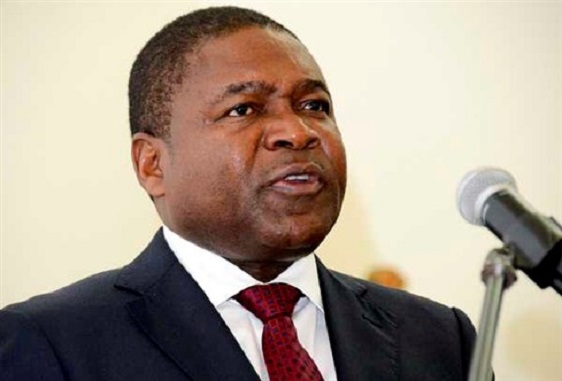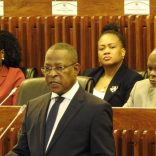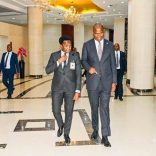Mozambique: Over 3,500 requests received by Ombudsman
Nyusi calls for “more professional” public sector

File photo / President Filipe Nyusi
Mozambican President Filipe Nyusi warned on Monday that inefficient management and corruption undermine the democratisation of public institutions.
Speaking in Maputo, during the official presentation of the members of the National Forum of the African Peer Review Mechanism (APRM), who will work on Mozambique’s second ARPM assessment, Nyusi said that the current ”stormy moment” the country is going through should serve as a lesson for a change in attitude by civil servants in how to manage public institutions.
Nyusi stressed the importance of a more professional public sector in carrying out to the full the government’s plans and strategies.
Drawing up a balance sheet of the public sector reforms so far, the President admitted there is still a long way to go. “After more than a decade of reforms, we feel there is still a lot we can do so that the public sector becomes a true lever for more effective compliance with government plans”.
He recognised the importance of the APRM National Forum in implementing changes in governance, and urged the Forum to remain a partner of the government in the new phase of modernizing the public administration.
“We think it fundamental that the public should be educated about their rights and duties, and complies with them”, Nyusi said. “Only thus will we be able to induce more dynamic changes in governance”.
Nyusi added that his own governance has been frustrated by the financial crisis shaking Mozambique. “We think everybody knows that Mozambique is attempting to emerge from an economic and financial crisis which has not only partly frustrated our plans and programmes for governance in the current five year period (2015-2019), but is also reducing the effectiveness of our actions, and our capacity to respond to the longings of the people”.
He declared the government is doing all in its power to mitigate the effects of the crisis, in order to ensure a speedy return to high levels of economic growth.
“This moment of crisis offers us an opportunity, albeit a painful one, to review some ways of making politics in Mozambique”, Nyusi added. “The economic crisis obliges us to be creative and to take up, individually and collectively, principles and habits that are precious for rational management of our resources”.
Mozambique has faced drastic cuts in foreign aid since April 2016, when the true scale of the country’s hidden debts became evident. Those debts were the result of illicit guarantees issued by the previous government, under President Armando Guebuza, for loans from European banks for over two billion US dollars granted to three security-related companies. All 14 donors who used to provide direct budget support suspended all further disbursements.
The APRM is a voluntary instrument to which member states of the African Union may accede, and which is intended to encourage conformity to political, economic and corporate governance values, codes and standards.












Leave a Reply
Be the First to Comment!
You must be logged in to post a comment.
You must be logged in to post a comment.